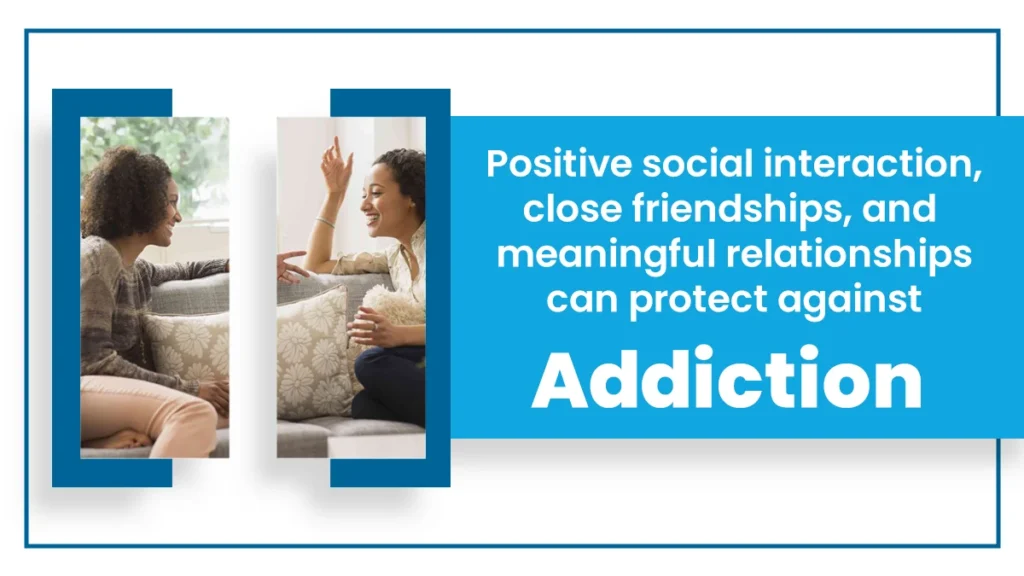Alcoholism and loneliness are closely linked. Loneliness, the feeling of being alone and disconnected from others, can significantly contribute to the development of alcoholism. This connection is not limited to any specific group. It affects people across the United States.
When people experience loneliness, they often turn to alcohol as a way to cope with their emotional pain. Alcohol seems like a temporary solution, providing a brief escape from the overwhelming feeling of isolation. However, this reliance on alcohol can lead to a harmful pattern, as it doesn’t address the root causes of loneliness and can eventually result in addiction. Continue reading to explore the various factors that contribute to this connection.
Key Takeaways
Loneliness and alcoholism are closely related. Here is what you need to know:
- Loneliness is the feeling of being alone and disconnected from others.
- This feeling significantly contributes to the development and escalation of addiction, particularly in early adulthood.
- Positive social interaction, close friendships, and meaningful relationships can protect against addiction.
- Combating addiction linked to loneliness requires not only treatment facilities but also engagement in regular physical activity, volunteer work, and active efforts to break the cycle of negative feelings and social isolation.
The Haven Detox-New England offers comprehensive addiction treatment services. Contact us at (844) 933-4145 for more information.
Loneliness’s Impact on Individuals
Loneliness poses significant dangers to individuals’ physical and mental well-being. In the United States, the prevalence of loneliness has been on the rise, impacting people from all walks of life.
The effects of loneliness are not limited to emotional distress. It can lead to severe health consequences. Extreme loneliness has been associated with increased stress levels, higher risk of heart disease, weakened immune systems, and even cognitive decline.
Moreover, individuals struggling with loneliness may resort to unhealthy coping mechanisms, such as alcohol or substance abuse, as they seek solace. The combination of loneliness and addiction can create a vicious cycle that is hard to break. Realizing the dangers of loneliness is essential, and addressing it is important for the overall health and well-being of society.
Increased Stress
When individuals grapple with loneliness, they often experience increased stress. The lack of emotional support and meaningful social connections can lead to a persistent state of anxiety and tension. This chronic stress can detrimentally affect physical health, contributing to conditions like hypertension, heart disease, and weakened immune systems.
Furthermore, elevated stress often drives individuals towards unhealthy coping means, such as overeating or substance abuse, worsening their overall well-being. Both individuals and society must recognize the danger of increased stress caused by loneliness.
Poor Sleep
Loneliness is more than just an emotional burden. It disrupts sleep patterns, leading to poor sleep quality.
When individuals grapple with loneliness, it often triggers insomnia, difficulty falling asleep, and frequent awakenings during the night. The absence of social connections and emotional support can heighten stress and anxiety, further compromising sleep.
Inadequate sleep not only impairs one’s cognitive function and mood but also jeopardizes physical health, increasing the risk of illnesses like obesity, diabetes, and cardiovascular problems. Addressing this issue requires not just emotional support but also strategies to improve sleep hygiene and overall well-being.
Deteriorating Mental Health
Loneliness is silently contributing to deteriorating mental health. This pressing concern extends beyond mere feelings of isolation; it can have severe consequences.
Individuals grappling with loneliness often experience a decline in their mental well-being. The absence of meaningful social interactions and emotional support can lead to increased stress, anxiety, and even depression. Prolonged loneliness can exacerbate these issues, fostering a negative feedback loop.
Alcohol Addiction
Loneliness plays a substantial role in the development of alcohol addiction. When individuals experience loneliness, the absence of emotional support and meaningful connections often leads them to turn to alcohol as a coping mechanism.
Alcohol appears to offer temporary relief from the overwhelming sense of isolation, but it creates a harmful cycle. Over time, increased alcohol use can escalate to addiction, compounding the individual’s problems. Loneliness and alcohol addiction are connected. We can reduce the risk of addiction by encouraging the adoption of healthier coping strategies.
Dealing With Loneliness Without Alcohol

Addressing loneliness without resorting to alcohol is vital, particularly as loneliness becomes increasingly prevalent in the United States. Instead of using alcohol as a temporary escape, individuals can employ healthier strategies to combat loneliness. Seeking social connections through clubs, support groups, or volunteering can provide meaningful interactions and emotional support.
Engaging in hobbies and activities, one is passionate about not only combats loneliness but also fosters personal growth. It’s also essential to maintain open communication with friends and family, as sharing feelings of loneliness can lead to increased emotional support. By opting for these positive alternatives, individuals can effectively tackle loneliness while safeguarding their well-being.
Get Some Sun
Getting sun is a simple yet effective way to improve your overall well-being. Exposure to sunlight provides several benefits, primarily through synthesizing vitamin D, vital for bone health and immune system function.
Additionally, sunlight can help regulate your sleep-wake cycle, enhancing your sleep quality and mood. Sunlight exposure also stimulates serotonin, a hormone that evokes well-being and happiness.
However, it’s essential to practice sun safety by wearing sunscreen and limiting exposure during peak sun hours to avoid skin damage. So, step outside, soak in some sun, and reap the physical and mental health advantages it offers.
Examine Your Relationships
Examining your relationships is a valuable step in nurturing your emotional well-being. In the United States, where interpersonal dynamics can significantly impact one’s life, understanding the quality of your connections is vital.
Assessing your relationships involves evaluating their impact on your mental and emotional health. Healthy relationships provide support, joy, and a sense of belonging, while toxic ones can lead to stress, anxiety, and loneliness.
It’s important to communicate openly, set boundaries, and seek professional guidance to mend or distance from problematic relationships. By actively examining and cultivating healthy connections, you can enhance your emotional resilience and overall happiness.
Organize Events
Organizing events can be a rewarding way to enrich your social life and contribute to your community. Where a community is highly valued, try to host events as it can foster connections and bring people together.
Whether it’s a neighborhood gathering, a charity fundraiser, or a hobby-related event, organizing such activities can create opportunities for meaningful interactions. It allows you to meet new people, share experiences, and develop a sense of belonging.
Moreover, event planning can be a fulfilling creative outlet. By initiating and participating in events, you can strengthen social bonds, combat loneliness, and add vibrancy to your life and those around you.
Go Out More
Venturing out more can significantly impact your well-being, especially in the United States, where a dynamic social life is often treasured. Escaping your comfort zone and exploring the world can lead to exciting experiences and new connections.
Whether visiting parks, attending local events, or simply taking a stroll in your neighborhood, being out and about opens doors to meet people, discover new interests, and combat feelings of isolation. It also offers the chance to enjoy fresh air, exercise, and a change of scenery, which can positively improve your mental and physical health. So, go out more and embrace the world outside.
Make New Friends
Making new friends is a valuable endeavor, especially in the United States, where social connections are highly regarded. Building new friendships enriches your life by introducing fresh perspectives, shared experiences, and emotional support.
To make new friends, start by engaging in activities you’re passionate about, such as joining clubs, classes, or online communities that align with your interests. Be open to striking up conversations and attending social gatherings, which can provide opportunities to connect with like-minded individuals.
Remember that forming friendships takes time, so be patient and genuine. Seeking new friends can combat loneliness and enrich your life.
Reducing Your Risk of Alcoholism
Reducing the risk of alcoholism is essential for maintaining a healthy and balanced life. In the United States, where alcohol is prevalent in social settings, it’s crucial to be mindful of your alcohol consumption and adopt strategies to prevent addiction. Here are some steps to help you reduce your risk of alcoholism:
Set Limits: Establish clear boundaries for your alcohol intake. Moderation is essential, so know your limits and stick to them. Avoid excessive drinking, especially in social situations.
Seek Alternative Coping Mechanisms: Loneliness and stress often drive people towards alcohol. Instead, explore healthier coping methods, such as exercise, meditation, or seeking support from friends and professionals.
Choose Your Social Circle Wisely: Surround yourself with friends who respect your boundaries and encourage responsible drinking. Avoid peer pressure to drink more than you’re comfortable with.
Educate Yourself: Learn about the risks of alcoholism and its consequences. Understanding the potential harm can serve as a strong deterrent.
Monitor Your Mental Health: Keep an eye on your emotional well-being. If you’re struggling with loneliness, depression, or anxiety, seek help from a professional who can provide guidance and support.
Stay Active: Physical activities can reduce stress and improve your overall well-being. Exercise can be a positive outlet for emotional challenges.
Know Your Triggers: Identify situations or emotions that prompt you to drink excessively. Having an awareness of these triggers can help you take preventive measures.
Establish a Support System: Build a strong support web of friends and family who can assist you in staying on track with your alcohol consumption goals.
Reduce your risk of alcoholism with these strategies. Seek professional help if you struggle to control your drinking habits.
Frequently Asked Questions (FAQ)
Why does alcohol make you lonely?
Alcohol abuse often leads to social isolation. Excessive drinking can affect one’s ability to engage in healthy ways with others, diminishing social support.
Long-term alcohol use can erode self-esteem and work on the mind and body, ultimately deepening loneliness. Mainly, women with low self-esteem may turn to alcohol as a coping mechanism, compounding the issue.
The research team found that seeking support services, including treatment facilities for substance use disorder, can help individuals break the cycle of problematic alcohol use and regain their connections with others.
What is the link between loneliness and addiction?
New research underscores the link between loneliness and addiction. Loneliness can lead individuals to seek solace in drugs or excessive alcohol consumption, as seen in previous studies.
Social interaction, close friends, and positive relationships can protect against addiction. Loneliness, often intertwined with symptoms of depression, can be both a cause of addiction and a result of it.
The early adulthood years, a critical period for addiction risk, are significantly impacted by these negative feelings and social disconnection. Seeking treatment facilities, volunteering, or engaging in regular physical activity can help address this challenging issue.
The Haven Detox-New England: Combat Dual Challenges
At The Haven Detox-New England, we understand the destructive cycle of loneliness and addiction. Let us help you start on the journey to recovery.
We offer a lifeline with our comprehensive services like detox, providing the essential first step to rid your body of harmful substances consumed during addiction. Our residential treatment gives you an environment to heal and nurture.
Our compassionate staff knows that mental health challenges often accompany addiction, and for that, we employ a dual diagnosis program for long-term sobriety.Wait no longer. Contact us at (844) 933-4145 today for more information.
Verify Insurance
Let’s get you or a loved one help with a few simple steps.
-
Alcoholism Treatment




